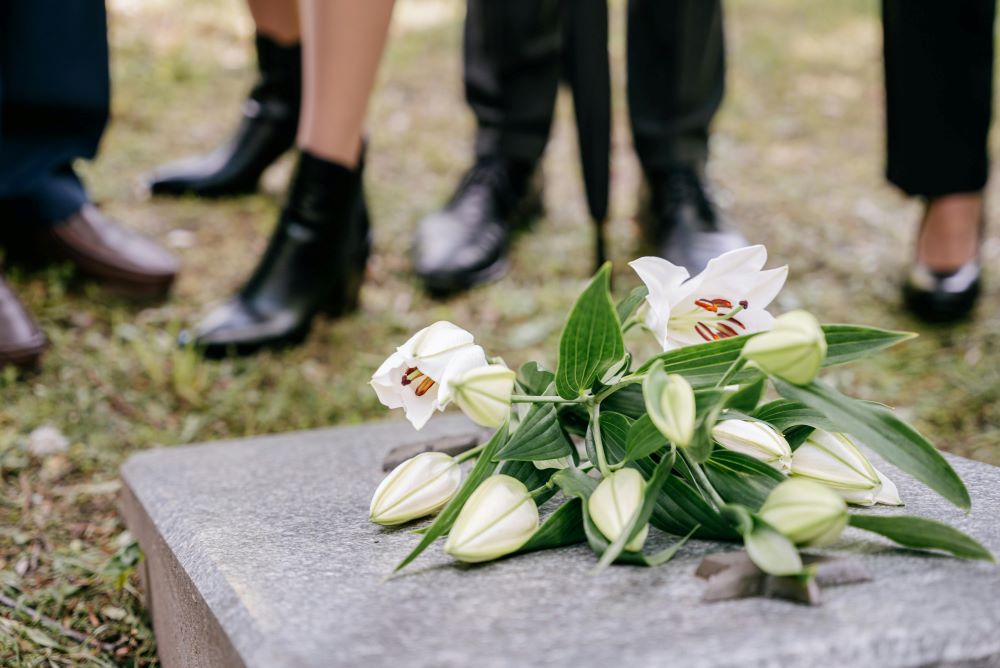OU News
News from The Open University
- Home
- Five books to help if you are dealing with death and bereavement
Five books to help if you are dealing with death and bereavement
Posted on • Arts, Arts and social sciences

CONTENT WARNING: This article contains references to death, bereavement and loss
Dr Bethan Michael-Fox is a Staff Tutor in English Literature at The Open University and co-host of The Death Studies Podcast. She researches cultural representations of death, dying and loss. In advance of National Grief Awareness Week [2-8 December] Bethan gives her book recommendations to help people explore the inevitable journey of death and the passing of others.
Everybody will experience death and bereavement at some point in their life. Sometimes those whose deaths form a part of our lives will be our closest loved ones.
At other times they may be people we have difficult, complicated, or even estranged relationships with. More often, they might be acquaintances, or people who we’ve never met but whose deaths impact us. Eventually, we will die, too. So, when is the right time to think about death and dying?
For many, knowledge about death and loss comes from books, film, television or other media. Sometimes people can be dismissive of this, but all kinds of media can offer wonderfully informative, meaningful and potentially therapeutic ways to engage with the emotive topics of death and loss. So, here are five recent books to read about death, dying and the dearly departed.
1. Mrs Death Misses Death by Salena Godden (published by Cannongate Books, 2022)
In this life-affirming debut novel by poet Salena Godden, death is personified as an overworked Black woman. This is a thought-provoking book that will likely make you laugh, cry and feel angry about the current state of the world.
Don’t go into it expecting a conventional novel – it’s best read in one or two sittings with a cuppa and an open mind about what a novel should be, and what death itself is.
2. Notes on Grief by Chimamanda Ngozi Adichie (published by 4th Estate 2022)
In this short book written in the immediate aftermath of a profound loss, author Chimamanda Ngozi Adichie writes about her father’s death. She considers how ‘grief is a cruel kind of education. You learn how ungentle mourning can be, how full of anger’.
Her reflections are especially apt for those bereaved at a distance, as many were during the height of the Coronavirus pandemic.
Adichie’s father died in Abba, South-east Nigeria, when she was in Maryland, USA, having spoken to him the day before on a video call. This powerful and emotive read about grief is one of my go-to gifts for the recently bereaved.
3. In Gratitude by Jenny Diski (published by Bloomsbury 2017)
This memoir was originally published as part of a diary Jenny Diski was writing for The London Review of Books. Whilst writing it, she discovered she had cancer.
The exceptionally well read and intelligent Diski was frustrated that it would now become another ‘cancer diary’ given their proliferation in recent years, but hers is an excellent contribution to this important genre.
It is a book about knowing you are dying and the questions that it can raise for someone who is not religious. It is also a funny and engaging memoir of a remarkable life.
The book also includes a moving contribution by Diski’s daughter in the aftermath of her mother’s death.
4. Levels of Life by Julian Barnes (published by Jonathan Cape 2014)
In an earlier book wittily entitled Nothing to be Frightened Of (because if you’re not religious, then when you die there is literally nothing to be frightened of), Julian Barnes wrote about the death of his parents. His later Levels of Life – half memoir, half fiction – is a response to the loss of his beloved wife Pat Kavanagh.
My copy is heavily tear-stained and has been loaned out more times than I can count. It is an honest, profound book, which acknowledges that in loss and grief there aren’t answers, just endless questions.
My favourite thing about it is that it emphasises the concept of ‘continuing bonds’. This is a term used to explain how, despite traditional stage theories of grief suggesting people ‘move on’ from their losses, many people continue to live and move forward.
And they do so with those they have lost through practices like talking to the deceased, engaging with physical items like clothing or other material objects, or by continuing a person’s legacy in some way.
5. Between The World And Me by Ta-Nehisi Coates (published by Text Publishing 2016)
This book takes the form of a letter written by Ta-Nehisi Coates to his son. It is about racism and the murder of Black men in the United States, and the fear that Coates experiences as the parent of a Black teenage boy.
This is another book that reflects on what death might mean if you are not religious – as Coates puts it: ‘I have no God to hold me up’.
It raises many big, important and hard-to-tackle questions about life, death and injustice, with Coates sharing my belief that questions matter just as much and maybe more than answers – especially when it comes to making sense of mortality.
If you want to explore your ideas about death and dying further, you can also complete a free course on OpenLearn entitled An introduction to death, dying and grief.
Picture credit: Ivan Samkov for Pexels